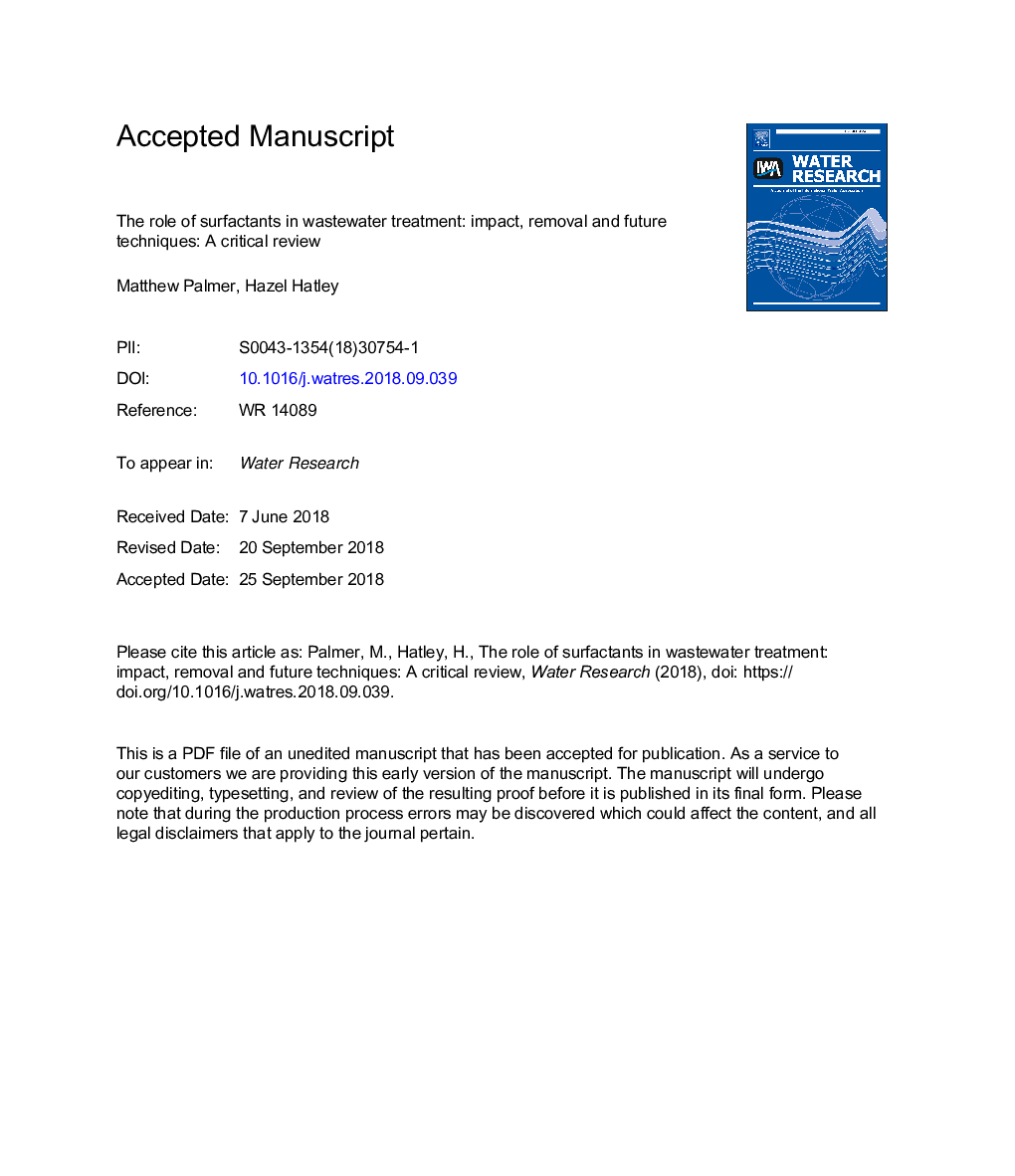| Article ID | Journal | Published Year | Pages | File Type |
|---|---|---|---|---|
| 11001847 | Water Research | 2018 | 65 Pages |
Abstract
Wastewater treatment has an important responsibility to react to changing consumer and industrial produced wastes that pose environmental challenges. Surfactants are one of these emerging contaminants. They are of interest because of their increasingly ubiquitous domestic and industrial use and the difficulty their presence causes traditional treatment. In response to this developing area, this critical review considers research from a variety of technical backgrounds to provide an up to date overview of the impact of surfactants on the environment, health and their removal. This found major concerns about surfactants on the environment and on health being corroborated in the past five years. Current research into removal focuses on existing biological and chemical wastewater treatment optimisation. Despite improvements being found to traditional biological methods using chemical pre-treatments there is a clear lack of consensus regarding the ideal strategy. Drawbacks and potential solutions for a range of these technologies, including Fenton reaction and aerobic degradation, are discussed. In this field the authors recommend an improved diversity in surfactants used for the research and addressing of significant knowledge gaps. Novel methods, such as Carbon Nanotube (CNT) use are also discussed. These methods, while showing promising results, will require continual research effort to resolve present issues such as variable performance and environmental concerns. Larger scale work is also needed to validate the initial work done. Potential uses of surfactants to optimise wastewater treatment, such as Surfactant Modified Zeolites (SMZs), are also discussed. This review finds that surfactant removal from wastewater is a promising and challenging field that warrants further investigation.
Related Topics
Physical Sciences and Engineering
Earth and Planetary Sciences
Earth-Surface Processes
Authors
Matthew Palmer, Hazel Hatley,
